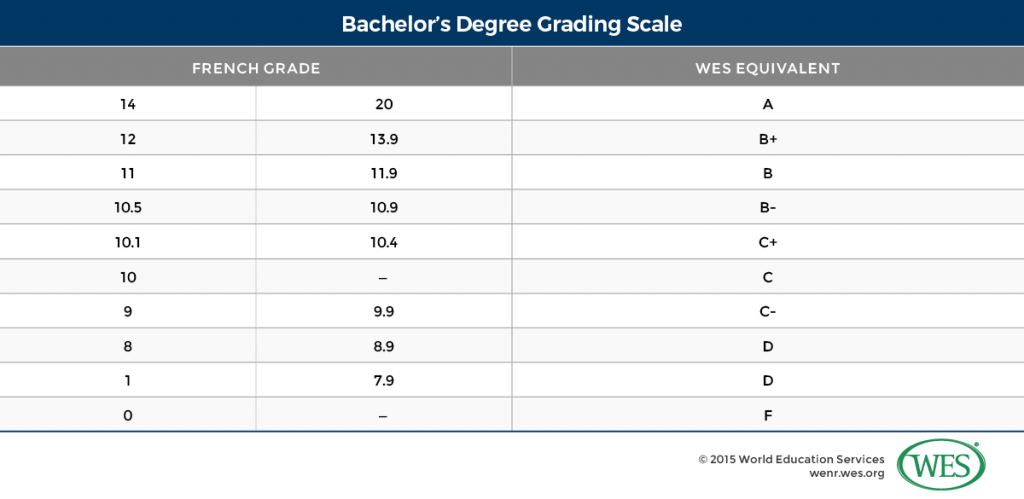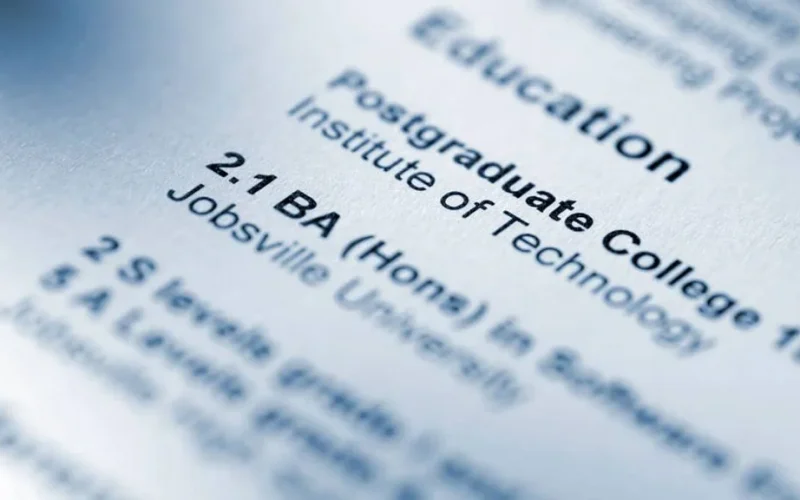Wondering if your grades measure up for college can feel confusing. I mean, all those numbers and letters! This article will crack the code of you, especially if you’re curious about a 2.1 degree. Is a 2.1 degree good?
Graduating from the university is a worthwhile experience that requires lots of dedication. However, graduating with a good grade is essential to boost your chances in the labor market.
Even though technology has made job requirements more skill-based, obtaining a 2.1 degree is still an important first step toward further academic and professional success.
So, if you just gained admission and wonder if a 2.1 degree is good, this article explains in detail what a 2.1 degree is.
If you already graduated and considering studying in other countries, this article also sheds light on the 2.1 degree equivalent in some countries. Get all the details about a 2.1 degree.
Table of contents
What is a 2.1 Degree in UK?
Commonly known as “upper second-class honors” or simply a “2.1.”, A 2.1 degree refers to a classification of academic achievement for undergraduate degrees.
This classification is based on the final overall average percentage or grade point average (GPA) that a student achieves throughout their degree program.
In the UK, undergraduate degrees are typically graded as follows:
- First-Class Honours (1st): This is the highest classification awarded to students with exceptional academic performance, usually with an overall average of 70% or above.
- Upper Second-Class Honours (2.1): A 2.1 degree indicates a strong performance throughout the degree program, with an average typically ranging from 60% to 69%.
- Lower Second-Class Honours (2.2): A 2.2 degree is awarded to students with satisfactory academic performance, with an overall average generally ranging from 50% to 59%.
- Third-Class Honours (3rd): This classification represents an adequate level of academic achievement, with an overall average typically ranging from 40% to 49%.
- Pass: A pass classification indicates that the student has met the minimum requirements for the degree, with an overall average typically ranging from 35% to 39%.
A 2.1 degree reflects a solid and commendable academic performance and opens doors to various opportunities for further education and career advancement.
Read Also: What Should You Wear to Graduation in the UK? Graduation Dressing Ideas
Is a 2.1 Degree Good?
A 2.1 degree is generally considered a good degree. Although not as high as a first-class, it reflects a solid academic effort and dedication.
Most educational systems hold a 2.1 degree in high esteem. Most scholarships would have a 2.1 degree as one of the criteria applicants must meet.
While it may not be the highest classification (which is a first-class honor), achieving a 2.1 degree can open up numerous doors for further education, career opportunities, and personal growth.
Although employers often value candidates with a 2.1 degree, they also consider other factors beyond just your degree classification, such as relevant work experience, extracurricular activities, and interpersonal skills.
Your degree classification is just one aspect of your overall profile, and your potential extends far beyond the confines of a single academic indicator.
Read Also: How Much Do A-level Tutors Charge in the UK? 2024
What Percentile of Students Get a 2.1 Degree in UK?
Getting a 2.1 degree places you among many students in academic achievement. In the UK, the top 60-70% of students get a 2.1 degree. So, if you earned upper second-class honors, you have performed well.
You are part of a substantial group of individuals who have demonstrated a strong understanding of the subject matter and a dedicated approach to their studies.
According to TimeshigherEducation, eight out of 10 students got a first or a 2:1 at almost 50 UK universities last year.
However, generally speaking, a 2.1 degree is a respectable accomplishment that showcases your commitment to learning and your ability to excel within your chosen field of study.
Read Also: What Percentage of Pupils Pass the 11 Plus Exams Yearly
What Is a 2.1 Degree Equivalent?
A 2.1 degree equivalent varies. While 2.1-degree fall within 60%-70% in most countries, it may be slightly higher or lower in some.
Below is the grade equivalent for a 2.1 degree in some countries:
#1. 2.1 Degree Equivalent in the USA

#2. 2.1 Degree Equivalent in the Netherlands

#3. 2.1 Degree Equivalent in France

#4. 2.1 Degree Equivalent in Spain

Do You Need a 2.1 Degree for a Postgraduate Degree?
Many postgraduate degree programs often require a 2.1 degree. While specific entry criteria can vary between universities and programs, a 2.1 degree is generally a suitable qualification for further postgraduate education.
Candidates who earn a 2.1 degree reflect solid academic foundations for most universities. However, some postgraduate programs have stricter entry requirements, and certain fields of study could place greater emphasis on other factors such as relevant experience, research potential, or a strong motivation for advanced studies.
While some programs may consider applicants with a lower classification, others offer conditional admission or pathways for individuals who show exceptional promise but fall slightly below the 2.1 threshold.
Also, see: What is a Single Honours Degree? Meaning, Pros and Cons, Courses
Colleges You Can Get Into With A 2.1 GPA
Unlike a 2.1 degree, a 2.1 GPA is equivalent to 76%, or a C, considered average.
And only a few colleges accept a 2.1 GPA. However, you can consider other routes to higher education.
With a 2.1, you’ll undoubtedly be faced with limited options in the college application process. You can still expect to be admitted to a few of the least selective schools, but your GPA severely limits your freedom of choice about where you apply.
Below are some colleges you can get into with a 2.1 GPA.
#1. Community Colleges
Community colleges often have more lenient admission requirements, making them an excellent option for students with a 2.1 GPA.
These institutions provide an opportunity to improve your academic standing while pursuing higher education.
#2. State Universities
Many state universities accept a range of GPAs, and a 2.1 GPA may not necessarily hinder your admission chances.
State schools often prioritize in-state applicants and focus on the student’s overall potential to the campus community.
#3. Liberal Arts Colleges
Liberal arts colleges emphasize a well-rounded education and may be more lenient with GPA requirements.
These colleges value critical thinking, creativity, and a passion for learning, which can compensate for a slightly lower GPA.
#4. Test-Optional Schools
Some colleges have adopted test-optional policies, allowing students to omit standardized test scores from their applications. This shift can benefit those with a 2.1 GPA, allowing them to highlight other strengths.
#5. Online Universities
Online universities provide flexibility for students looking to earn a degree while managing other commitments.
Some institutions have more lenient GPA requirements, making education accessible to a broader range of learners.
Also, read: Top 10 Online Universities and Colleges in the US
#6. Specialized Programs
Certain colleges offer specialized programs in art, music, or vocational studies. These programs often consider applicants’ dedication and talent over GPA, making them viable options for passionate individuals.
What Can You Do with A 2.1 Degree?
A 2.1 degree equips you with valuable skills and knowledge that can be applied across various industries. You will enjoy all the perks academically and professionally that come with graduating with a 2.1 degree.
Some of the advantages of holding a 2.1 degree include:
1. Versatility and Adaptability
A 2.1 degree showcases your ability to learn and adapt. This flexibility is highly valued in today’s dynamic job market, where versatility is a sought-after trait.
2. Higher Earning Potential
Compared to lower degree classifications, a 2.1 degree often correlates with higher earning potential. As you climb the career ladder, your solid academic background can contribute to competitive salaries.
3. Confidence and Self-Esteem
Earning a 2.1 degree is an accomplishment that boosts your confidence and self-esteem. It validates your hard work and dedication, empowering you to tackle challenges with a positive outlook.
A 2.1 degree also qualifies you for various postgraduate options, like
1. Master’s Degree
A 2.1 degree makes you eligible for a wide range of master’s programs. Whether you’re interested in a specific field or want to explore a new discipline, a master’s degree can enhance your expertise and open doors to advanced roles.
2. Ph.D. Studies
For those interested in research and academia, obtaining a 2.1 degree can serve as a necessary step toward pursuing a Ph.D. degree. This path can open up exciting opportunities for groundbreaking research and a fulfilling career.
Also, see: How Can I Get A PhD In Finance Online | Schools, Requirements, Cost
3. Professional Certifications
To boost your chances of employment and show your dedication to ongoing education, consider obtaining industry-specific certifications to complement your 2.1 degree. These credentials can be valuable additions to your qualifications.
Frequently Asked Questions
Yes, a 2.1 degree in the UK is considered a good result.
Second-class honors, upper division (2.1): usually, the average overall exam score of 60%+
Yes, some colleges have test-optional or holistic admissions policies that place less emphasis on GPA
Yes, a 2.1 degree is a higher classification than a 2.2 and is generally considered more favorable by employers and academic institutions.
While a 2.1 degree provides ample earning potential, it’s important to note that factors such as experience, skills, and the industry you choose also significantly determine your salary.
Conclusion
A 2.1 degree is valuable, providing access to rewarding career paths and further academic pursuits.
While it may be challenging, the dedication and hard work required to achieve a 2.1 degree can contribute to your personal and professional growth.
Remember, success is not solely defined by classification but by your determination, passion, and commitment to continuous learning.
References
- My Study Fit.com – What is a 2.1 degree, and is a 2.2 degree worth anything?
- The Student Room – Is a 2.1 even anything to be proud of any more?
- Think Student.co.Uk – Is a 2.1 Degree Good?
Recommendations
- What Does Hons Mean? Honours Degree Meaning And Benefits
- How Many Degrees Can You Get?
- Are Language Degrees Worth Studying at University?
- 10 Fun Majors and Degrees to get into
- How Much Does a Master’s Degree Cost?
- Can I Get An MBA Without A Business Degree? Explained
- 25 Best College Degrees that Guarantee a Job After Graduation


